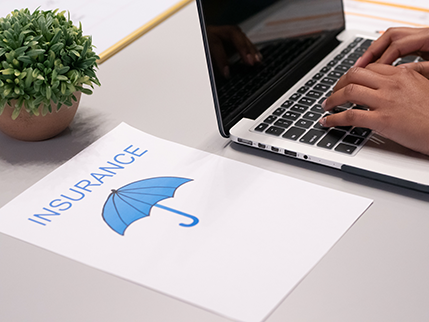If it’s your first time buying a house, it’s important to note that alongside saving for a mortgage deposit, there are quite a few fees, charges and costs to consider that you’ll have to factor into your financial planning. We go through all the first time buyer costs to consider in our checklist so you can avoid any unpleasant surprises when you're getting ready to buy your first home.
Our video for first time buyers is a great watch, containing information on the various costs associated with buying a property. You can also check out our house buying guide. Some costs must be paid before you complete the purchase, whereas others are paid once you’ve moved in or are ongoing, such as your mortgage. You can check out how much different first time buyer mortgage rates are on our page and learn how to buy your first home with a small deposit in our guide.
The Topics Covered in this Article Are Listed Below:
How Much Does It Cost to Move Home?
The cost of moving home can vary widely depending on several factors - including: the distance of the move, the size of your home, whether you hire professional movers or do it yourself and which additional services you might need.
Today, the cost of buying a property alone – not including the moving costs - is an average of £3,000 - £3,500 and includes charges such as Stamp Duty, valuation, house surveys and conveyancing. We’ll look at all the fees and costs you need to consider as a first time buyer below.
Application Fee
Some mortgage lenders will ask you to pay an application fee at the start of the application. They typically cost around £99 but it could be a little more. Some lenders don’t charge a booking fee. This payment is non-refundable, even if you don’t end up with an approved mortgage with the lender.
Arrangement Fee

Arrangement fees are often charged by lenders. Historically, they covered the lender’s administration costs but, over time, they’ve become a significant additional cost. While the average fee is from £999, you could pay up to £2,000. Some arrangement fees are calculated as a percentage of the loan and could be a sizeable amount if you’re taking out a large mortgage.
When shopping for mortgages, it’s important to assess the arrangement fee alongside the interest rate. Some lenders may offer lower interest rates to tempt buyers but also include comparatively higher fees in the small print. If it’s a larger loan you’re after, this may still make sense.
You’re typically given the option of paying the fee upfront or rolling it into the mortgage. Be aware that if you choose the second option, although you must find less money in addition to your deposit, ultimately you’ll be paying interest on it. On the other hand, if you pay the fee upfront, you’re at risk of losing the fee if the purchase doesn’t go through.
One tip to resolve this conundrum, ensuring that you don’t lose the deal, but also don’t pay any interest on it, is to add the fee to the mortgage and overpay your mortgage immediately. Lenders typically allow overpayments of up to 10% of the mortgage balance each year. It’s important to check overpayment rules with your selected lender before you go ahead with this strategy. Find out more ways to save on your mortgage.
Valuation Fee
Banks and building societies offering mortgages need to conduct an independent valuation of the property you’re intending to buy. This ensures the offer price is in line with its market value. They do this as part of a risk assessment of the application to ensure that in the case that you can no longer cover the monthly payments, they can take possession of the property, sell it and not lose money.
Some lenders offer clients a free valuation – often this is a desktop valuation rather than an in-person on. A normal, in-person valuation can cost around £300 on properties worth below £500,000. You pay the valuation fee during the mortgage application process, along with the mortgage booking fee and the arrangement fee. The valuation fee is non-refundable regardless of whether you complete.
There’s a slightly different system in Scotland, where the seller needs to pay for a Home Report which will include a valuation. If the report was finalised within the previous 3 months, it may still be used in place of a fresh valuation. Otherwise, you can ask the seller to commission a new report. You should check with your lender whether they accept reports from the valuation company the seller used.
House Survey
While a valuation is for the lender’s benefit to ensure the property is appropriately valued, a home survey is for the buyer’s benefit and is a much more thorough assessment of the property. While surveys commissioned by the buyer are not mandatory, they do help you avoid costly and unanticipated surprises such as the house needing rewiring or floor joists needing replacing.
As well as giving you peace of mind, buyers often use surveys to renegotiate the seller’s offer price. It’s up to you to find a surveyor, but you can also ask your lender how much it would cost to upgrade their valuation survey into a house survey and compare it with third party firms. One advantage of commissioning the survey independently of the lender is that you can leave it to the end of the application process just in case the transaction falls through.
Advice Fee
If you’ve used a mortgage broker to guide you in finding a mortgage, you may have to pay them a fee. Some will have a fixed fee and some will charge a small percentage of the loan value. Before booking a mortgage broker, ask them in advance what their fee structure is, whether there will be a fee involved and when you need to pay.
At John Charcol, our advisers will explain our fees upfront. We charge a fixed fee for first time buyers and don’t require payment until a mortgage offer is received. This fee covers everything from securing your Decision in Principle, to submission and supporting you through every step until completion. We liaise with lenders and solicitors on your behalf in order to make your journey as easy as possible.
Why Should I Pay for a Mortgage Broker?
Using a mortgage broker can offer many advantages when you're looking to buy a home or refinance a mortgage. Some mortgage brokers, like John Charcol charge a fee. Why? Because we provide an exceptionally high level of service to our clients. Just check out our reviews!
Here’s what you pay for when you work with John Charcol:
Access to Multiple Lenders
John Charcol has relationships with a variety of lenders and can access a broad spectrum of mortgage products. This access allows us to shop around on your behalf to find loans with competitive interest rates and terms that fit your financial situation and goals.
Saves Time
The mortgage application process can be time-consuming, with a need to compare rates and terms across multiple lenders. John Charcol handles these tasks for you, presenting you with options without the need for you to apply separately to each lender. This can save you considerable time and effort.
Expertise and Advice
John Charcol are experts in the market and understand the details and complexities of mortgage products. We can provide valuable advice on the most suitable options based on your financial circumstances, helping you make informed decisions. We can also explain the various aspects of the mortgage process and any associated costs.
Better Access to Deals
John Charcol has access to special rates and products due to our volume of business and relationships with lenders, which might not be available to the general public. This insider access can lead to better terms and savings over the life of your loan.
Assistance with Paperwork
We manage the paperwork and administrative tasks involved in the mortgage process. We also ensure that your application is complete and submitted on time, which can help avoid delays.
Tailored Service
At John Charcol, we tailor our service to your specific needs, taking into account any unique circumstances such as self-employment or past credit issues. We work to find lenders who are more likely to accommodate your situation, potentially improving your chances of approval.
Negotiation on Your Behalf
John Charcol can negotiate terms with lenders, potentially securing more favourable conditions or waivers of fees that you might not be able to negotiate on your own.
Ongoing Support
Even after the loan is closed, we provide ongoing support, helping you with future refinancing needs or answering any questions you may have about your mortgage.
In summary, John Charcol can simplify the process of finding a mortgage, provide expertise and a personalised service, and save you time and money.
Stamp Duty
Stamp Duty – officially known as Stamp Duty Land Tax (SDLT) - is a tax payable if you purchase property or land in England or Northern Ireland above a certain price – currently £250,000. In Scotland, Stamp Duty is known as “land and buildings transaction tax”. Meanwhile, it's known as “land transaction tax” in Wales.
If you’re a first time buyer, you don’t pay Stamp Duty for properties valued up to £425,000. If the property you want costs more than that, you’ll pay 5% on the portion between £425,001 and £600,000. If the property is worth more than £600,000, there’s no Stamp Duty exemption. Being classified as a first time buyer can make a significant difference to your costs when buying a home. Find out more in our Stamp Duty Guide.
You pay Stamp Duty to the HMRC via your solicitor/conveyancer on completion of the property purchase. You can calculate how much you’ll owe using our Stamp Duty calculator.
Legal Fees
Legal fees cover everything you pay to a solicitor to handle all the unavoidable paperwork, such as checking planning permission and addressing any environmental concerns. The general term for legal work concerning property transactions is known as conveyancing, although this is often more narrowly defined as legal support for the transfer of ownership of a property.
Solicitors usually charge you as a percentage of the mortgage value. If you’re the buyer, legal fees will also include Stamp Duty and search fees. Mortgage lenders often offer to contribute to your conveyancing fees or even pay them in full, but this tends to be when you use one of their pre-approved solicitors. Other lenders sometimes offer you a cashback on legal fees once you’ve completed.
The average cost of solicitors' fees for first time buyers can be anywhere between £800 and £1,500 but depend on the mortgage amount. You should expect to be invoiced throughout the process and on completion.
Removal and Moving Costs

Depending on how much furniture and other belongings you have and how far away you’re moving, you can expect to pay around £1,000 - £1,500 to move home as a first time buyer or previous homeowner. This includes hiring a removal van as well as paying for postal redirection. You’ll pay more if you’re booking a full removal service, which involves packing and unpacking your belongings.
John Charcol offer a Concierge Service through our partnership with Just Move In. We can help you arrange removals, storage and the setting up of your bills. Ask you adviser to find out more.
Mortgage Fees
Once you have completed, you start paying your monthly mortgage payments to pay off the loan. All mortgages include an annual percentage rate – an APR – which is the interest you pay on top of the loan across the term of the mortgage. The first payment is likely to be higher than your ongoing payments as you will be paying for the month the mortgage started as well as the following month.
Service Charges
If the property you’ve bought is leasehold and you don’t own the land, you’ll likely have to pay a service charge for the upkeep of the property and – if you’ve bought a flat - shared areas such as the drive and garden. You’ll also have to pay ground rent to whoever owns the freehold.
The same applies if you’ve also bought the freehold or shared it with neighbours: you’ll still have to build into your budget maintenance costs for shared areas, such as contributing to fixing the drains or the roof.
Furnishings
If you’re currently renting a furnished apartment or house, you’ll need to fork out a significant sum to avoid sitting and sleeping on the floor. Beds, sofas, carpets, white goods and curtains can cost far more than you might imagine. If the house was furnished when you viewed it, be sure to check with your solicitor what will remain once contracts have been exchanged. If it’s not listed in the contract, it’s not likely to still be there when you move in.
Insurance

There are 3 types of insurance associated with taking out a mortgage and moving into your new home:
Buildings Insurance
You must take out building insurance when you take out a mortgage. This covers the external and fixed aspects of your property - such as the walls, the roof, ceilings, floors, doors and windows. A standard building insurance policy will cover repair, replacement or rebuild of any of these items in the event of a fire, lightning strike, flood, gas explosion, etc.
If you’re buying a leasehold-only property, this insurance may already be covered by the monthly or annual maintenance fee. However, if you’re buying the freehold, you’ll likely need to arrange your building insurance; this will need to be in place before you exchange contracts.
Contents Insurance
Unlike buildings insurance, contents insurance isn’t mandatory. Contents insurance covers all your possessions in case of theft or damage caused by a fire, flood, explosion, lightning or an earthquake. Possessions refer to items such as furniture, white goods and other electrical items, jewellery, money and clothes. It may also cover fixtures, such as carpets and curtains.
If you're planning to take out contents insurance, you should be careful to calculate the total value of your belongings so that the maximum level of cover will be sufficient to replace stolen or damaged items. It's surprisingly common for policyholders to underestimate the total value of all their possessions.
It's a good idea to go from room to room, making a full inventory of all your possessions, including whatever is in the attic and the garden shed.
Protection Insurance
When discussing with your mortgage adviser, they are likely to bring up the benefits of protection insurance. This protects homeowners against the adverse consequence of death, critical illness or loss of income. Although it’s an additional cost, it ultimately protects you and your family from the risk of losing your home, should the worst happen.
Life insurance is one form of protection insurance and will pay out a tax-free lump sum to your dependents in the event of your death. Critical illness insurance will also pay out a tax-free sum should you be diagnosed with a listed critical illness. Family Income Benefit is similar to life insurance, except that instead of a lump sum, a regular tax-free income is paid to your dependents in the event of your death. Finally, income protection insurance pays out a monthly income to partially cover your salary in the event of an accident or an illness that prevents you from working and maintaining a salary.
First-Time Buyer Mortgages
Discover the best first time buyer mortgage rates available and the latest advice from John Charcol: mortgage broker for first time buyers.
Buying Your First Home
From the definition of a first-time buyer, through the steps to buying a property and the costs you’ll face - everything you need to know is in our guide.
What Is a First Time Buyer?
Learn all about what it means to be a first-time buyer, how the process works and how the first-time buyer status is determined.
Your First Mortgage Appointment
Your first mortgage adviser appointment can be overwhelming. Learn all you need to know and what you need to be prepared for prior to your first conversation.
The Bank of Mum and Dad – How to Help Your Children Buy a Home
With many prospective buyers turning to the bank of mum and dad, learn about some of the ways parents can support their children in buying a home.
House Buying Mortgage Guide
Are you looking to buy your first home? Or perhaps want to move to a new area? Our step-by-step guide will tell you everything you need to know about buying a house.
Protecting Your Home and Property
It's important to understand what protection you must have in place to buy a home and the options open to you to provide you with peace of mind.
Stamp Duty Calculator
Use our stamp duty calculator and find out how much tax you will pay when buying a main residential or secondary property in England or Northern Ireland.
